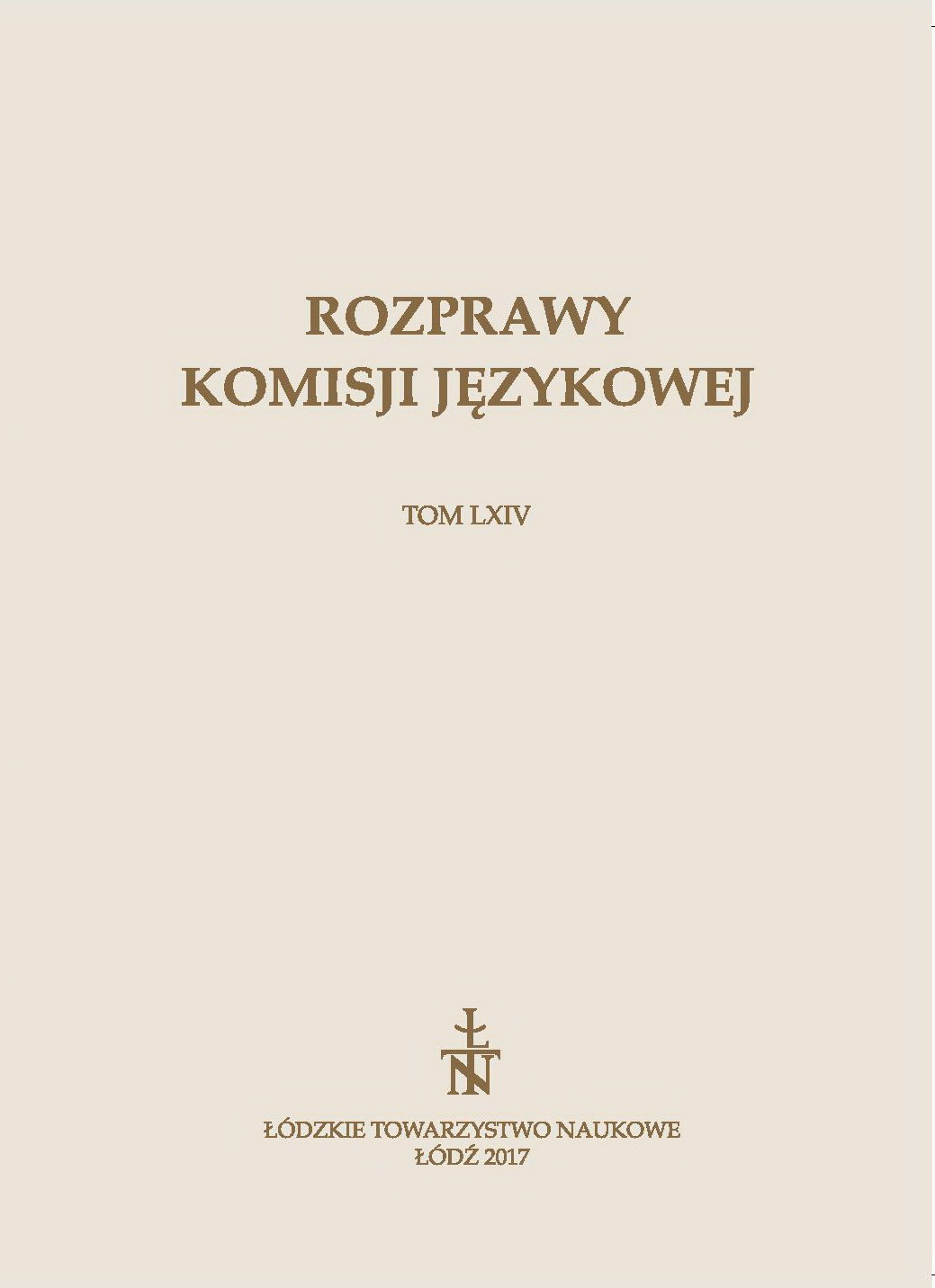Dukawka, gulgot, sepioł…, it means how in local dialects of the Małopolska-Mazovian linguistic borderland people who stutter, sputter or lisp are named
http://doi.org/10.26485/RKJ/2017/64/13
Abstract
Unless in literary language, in local dialects there are more linguistic measures which are used to form expressive names, mainly marked negatively. These expressive derivatives with the negative connotations are created at the participation of semantic and morphological means. The purpose of the article is to show some semantic elements building the expressive value (pejorative) of derivatives, included in root words and formal exponents forming these derivatives. This article revolves around the lexical bases which are etymologically different and derivational diversity. Apart from that the creation of the chosen names associated with pathology of speech stayed was discussed. Analysed material was gathered with questionnaire method during the exploration of the area of the borderland. The abundance of synonyms described in the article is proving the sensitivity of the society to the phenomena of the pathological speech, as well as great power and diversity of emotional experiences, caused by disorders of speech and the perception of speech.






